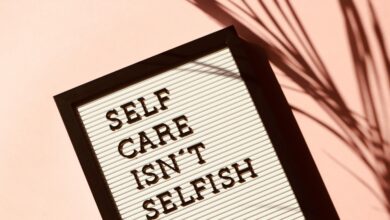The Best Ways to Practice Self-Care: A Holistic Guide to Nurturing Your Mind, Body, and Soul

In today’s fast-paced world, self-care has become more than just a buzzword—it’s a necessity. Practicing self-care is about prioritizing your physical, emotional, and mental well-being so you can thrive in all aspects of life. Whether you’re feeling overwhelmed, burnt out, or simply need a little TLC, incorporating self-care into your daily routine can help you recharge, refocus, and reconnect with yourself. In this article, we’ll explore the best ways to practice self-care across various dimensions of wellness.
Why Is Self-Care Important?
Self-care isn’t selfish; it’s essential. When you take care of yourself, you’re better equipped to handle stress, build resilience, and maintain healthy relationships. Neglecting self-care can lead to burnout, anxiety, and even physical health issues. By making time for activities that nourish your mind, body, and soul, you create a foundation for long-term happiness and balance.
1. Physical Self-Care
Taking care of your body is one of the most fundamental aspects of self-care. Physical self-care includes anything that improves your physical health and helps you feel energized.
Tips for Physical Self-Care:
- Exercise Regularly : Engage in activities you enjoy, such as walking, yoga, dancing, or swimming. Exercise releases endorphins, which boost mood and reduce stress.
- Prioritize Sleep : Aim for 7–9 hours of quality sleep each night. Create a calming bedtime routine by avoiding screens and practicing relaxation techniques like deep breathing or meditation.
- Eat Nutritious Foods : Fuel your body with whole, nutrient-dense foods like fruits, vegetables, lean proteins, and whole grains. Stay hydrated throughout the day.
- Practice Good Hygiene : Take care of your personal grooming habits, such as showering, brushing your teeth, and wearing clean clothes. These small acts can significantly impact how you feel.
- Schedule Routine Check-Ups : Visit your doctor, dentist, and other healthcare providers regularly to stay on top of your health.
2. Emotional Self-Care
Emotional self-care involves acknowledging and processing your feelings in healthy ways. It’s about giving yourself permission to feel without judgment and finding outlets to express emotions constructively.
Tips for Emotional Self-Care:
- Journaling : Write down your thoughts and feelings to gain clarity and release pent-up emotions.
- Talk to Someone You Trust : Share your struggles with a friend, family member, or therapist. Sometimes, simply talking things through can lighten the emotional load.
- Set Boundaries : Learn to say “no” when necessary and protect your energy from toxic people or situations.
- Practice Gratitude : Keep a gratitude journal or take a moment each day to reflect on what you’re thankful for. This shifts your focus from negativity to positivity.
- Allow Yourself to Feel : Don’t suppress your emotions—cry if you need to, laugh when something amuses you, and embrace joy whenever possible.
3. Mental Self-Care
Mental self-care focuses on stimulating your mind and reducing cognitive overload. It’s about keeping your brain sharp, engaged, and relaxed.
Tips for Mental Self-Care:
- Read Books or Articles : Dive into topics that interest you or challenge your thinking. Reading expands your knowledge and provides an escape from daily stressors.
- Learn Something New : Pick up a new hobby, skill, or language. Challenging your brain keeps it active and boosts confidence.
- Limit Screen Time : Take breaks from social media and digital devices to prevent information overload and give your mind a rest.
- Practice Mindfulness : Incorporate mindfulness practices like meditation or mindful breathing to calm racing thoughts and improve focus.
- Declutter Your Space : Organize your home or workspace to create a peaceful environment that promotes productivity and relaxation.
4. Social Self-Care
Human connection is vital for emotional well-being. Social self-care means nurturing meaningful relationships while also setting boundaries to protect your energy.
Tips for Social Self-Care:
- Spend Time with Loved Ones : Schedule regular catch-ups with friends or family members who uplift and support you.
- Join Communities : Participate in groups or clubs aligned with your interests, whether it’s a book club, sports team, or volunteer organization.
- Be Selective About Social Interactions : Surround yourself with positive influences and distance yourself from toxic individuals.
- Express Appreciation : Show gratitude to those who matter to you through kind words, gestures, or thoughtful gifts.
- Enjoy Alone Time : Balance socializing with solitude to recharge and reflect.
5. Spiritual Self-Care
Spiritual self-care doesn’t necessarily mean religion—it’s about connecting with something greater than yourself and fostering inner peace.
Tips for Spiritual Self-Care:
- Meditate or Pray : Spend quiet moments reflecting on your values, purpose, or faith.
- Spend Time in Nature : Go for a hike, sit by the ocean, or simply walk barefoot in the grass. Nature has a grounding effect on the spirit.
- Practice Yoga or Tai Chi : These ancient practices combine movement, breathwork, and mindfulness to nurture both body and soul.
- Engage in Creative Expression : Paint, write poetry, play music, or engage in any creative activity that allows you to express your inner self.
- Volunteer : Helping others can bring a sense of fulfillment and deepen your connection to humanity.
6. Professional Self-Care
For many people, work plays a significant role in their lives. Professional self-care ensures that your career enhances rather than detracts from your overall well-being.
Tips for Professional Self-Care:
- Set Realistic Goals : Break tasks into manageable steps and celebrate small wins along the way.
- Take Breaks : Step away from your desk periodically to stretch, breathe, or grab a snack.
- Communicate Effectively : Advocate for yourself at work by discussing workload concerns or seeking support when needed.
- Pursue Growth Opportunities : Attend workshops, webinars, or training sessions to develop professionally and personally.
- Leave Work at Work : Establish clear boundaries between your job and personal life to avoid burnout.
7. Financial Self-Care
Managing finances responsibly reduces stress and empowers you to make choices that align with your values.
Tips for Financial Self-Care:
- Create a Budget : Track your income and expenses to understand where your money goes.
- Save for the Future : Set aside funds for emergencies or long-term goals like retirement or travel.
- Avoid Impulse Purchases : Pause before buying non-essential items to ensure they truly add value to your life.
- Seek Professional Advice : Consult a financial planner if you need guidance on managing debt, investments, or savings.
- Celebrate Financial Wins : Reward yourself (within reason) for milestones like paying off debt or sticking to your budget.
8. Creative Self-Care
Engaging in creative activities stimulates imagination and provides an outlet for self-expression.
Tips for Creative Self-Care:
- Try Art Therapy : Draw, paint, or doodle without worrying about perfection—it’s about the process, not the product.
- Write Stories or Poems : Let your creativity flow onto paper.
- Cook or Bake : Experiment with recipes and savor the sensory experience of cooking.
- DIY Projects : Tackle home improvement projects or crafts that excite you.
- Attend Cultural Events : Visit museums, galleries, concerts, or theater performances to inspire your artistic side.
9. Digital Detox Self-Care
Constant connectivity can drain your energy and increase stress levels. A digital detox allows you to unplug and reconnect with the present moment.
Tips for Digital Detox Self-Care:
- Turn Off Notifications : Silence unnecessary alerts to minimize distractions.
- Designate Tech-Free Times : Avoid screens during meals, before bed, or first thing in the morning.
- Go Offline for a Day : Dedicate one day a week to being completely screen-free.
- Use Apps Wisely : Leverage apps designed to promote mindfulness, productivity, or relaxation instead of mindless scrolling.
- Reconnect with Analog Activities : Read physical books, write letters, or play board games.




